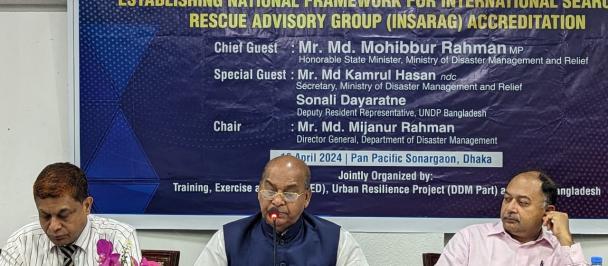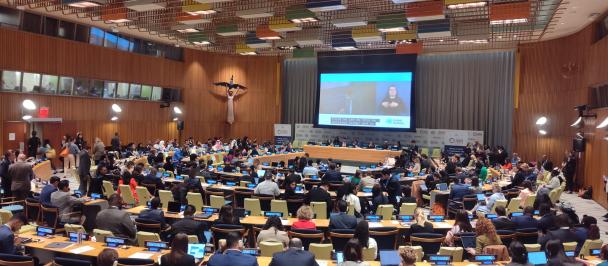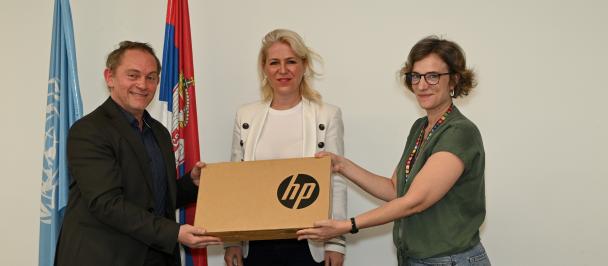Top Nordic investors will pilot new SDG-enabling tools
Oslo—United Nations Development Programme Administrator Achim Steiner called on business leaders and investors to scale up efforts to advance the Sustainable Development Goals (SDGs), saying private sector engagement is vital to achieving the global targets.
“More needs to be done to create the transformational and systemic changes that achieving the SDGs will require,” Steiner said. “We need the union among business, society, and government. The truth is we cannot succeed in isolation of each other.”
Global poverty has fallen by more than one third since 1990, and many more people have access to education, health care, and opportunities. But conflict and climate change have worsened hunger and forced displacement, with 68.5 million people now displaced worldwide. More than 2 billion people still lack basic sanitation, and land degradation threatens the livelihoods of more than 1 billion people.
Governments must act to strengthen enabling environments, reduce investment risks, and require transparency and disclosure of impacts on sustainable development, but “without the engagement of the private sector, the SDGs are unattainable,” Steiner said.
A new enabling initiative
Steiner met here with leading Nordic investment firms EQT, Summa Equity, and LGT at the Business for Peace Summit to launch the Nordic Springboard of UNDP’s SDG Impact initiative. SDG Impact aims to enable private sector investment in advancing the Global Goals by providing investors and businesses with tools, training, data, and market intelligence to support and certify their contributions toward achieving the 17 globally agreed targets.
In partnership with the Impact Management Project, SDG Impact is devising global standards, metrics, and opportunity maps for investors and businesses to measure impact toward achieving the SDGs and creating an SDG Impact Seal to certify adherence to agreed standards. Nordic investors will pilot these SDG-enabling standards through UNDP and the Business for Peace Foundation.
Anna Ryott, Chair of Summa Equity, is among 10 recently announced business and investment leaders named to the SDG Impact Steering Group, which will hold its inaugural meeting in New York on 20 June.
The business and economic case
The private sector generates 60 percent of gross domestic product, 90 percent of jobs and 80 percent of capital flows in the average developing country, providing innovation and generating much-needed tax revenue. But private investment in developing economies remains low, with the world’s 47 least developed countries receiving just 2 percent of foreign direct investment in 2017, or US$26 million.
Research has consistently shown, further, a strong business case for private sector engagement in achieving the SDGs—17 specific, time-bound targets aimed not simply at halting or mitigating threats to people and planet but at creating a better world for all.
Developing products and services for underserved markets leads to new customers, jobs, and market opportunities while companies that use resources more efficiently will save money and those that treat workers equally and fairly will improve their reputation and be able to tap the widest possible labor and customer pools.
This September, Heads of State and Governments will gather at UN Headquarters for an SDG Summit for the first time since all 193 UN Member States agreed to the 17 targets in 2015 and committed to achieving them by 2030.
According to the OECD, official development assistance (ODA) was US$146.6 billion in 2017. By comparison, foreign direct investment (FDI) flows to developing economies totaled US$671 billion in the same year, quadruple the figure for official aid.
The Business Commission on Sustainable Development at Davos estimated last year, further, that up to US$12 trillion in new economic opportunities could be generated through investments in areas such as agriculture, cities, energy, and health.

 Locations
Locations


